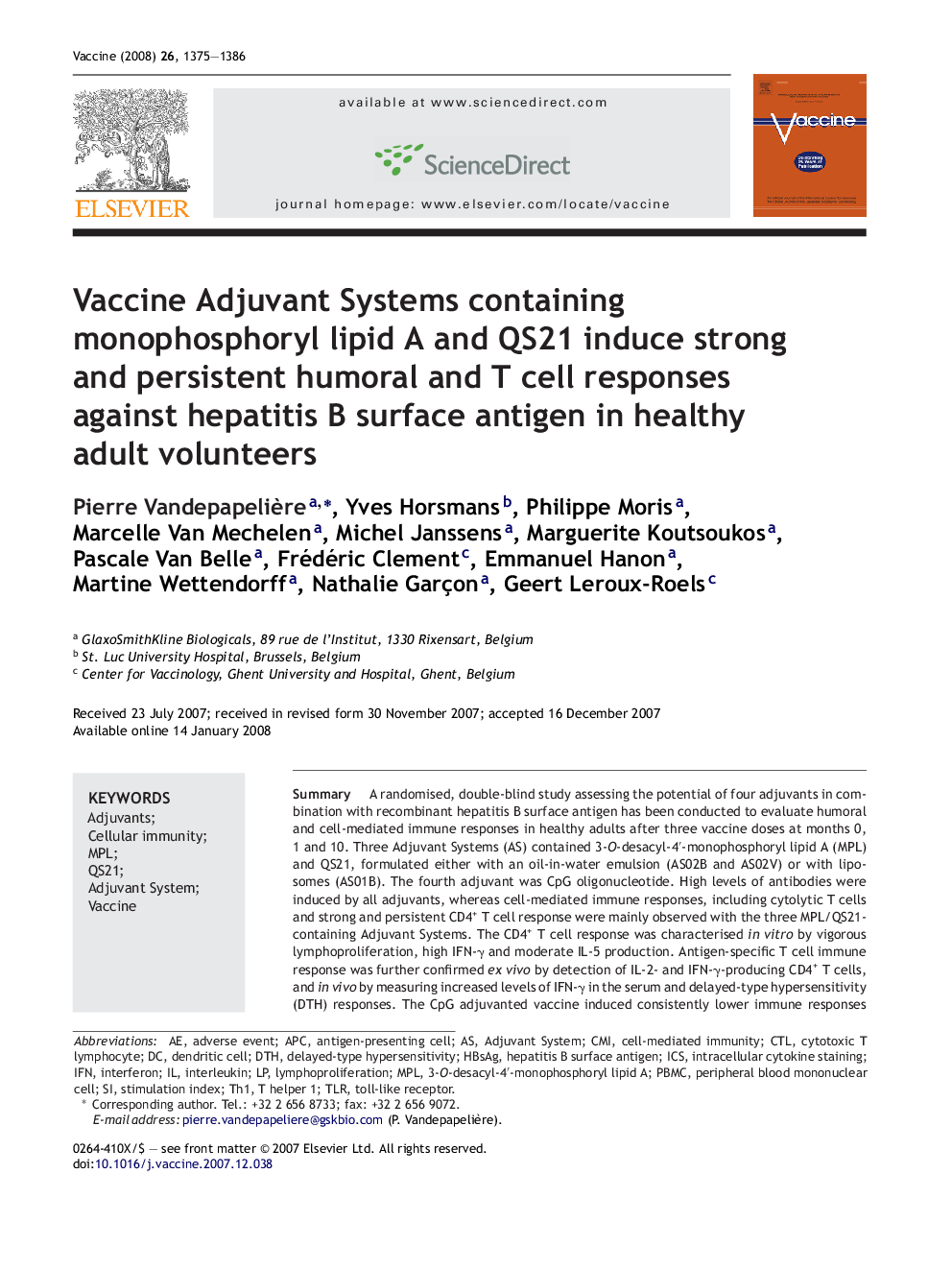| Article ID | Journal | Published Year | Pages | File Type |
|---|---|---|---|---|
| 2407039 | Vaccine | 2008 | 12 Pages |
SummaryA randomised, double-blind study assessing the potential of four adjuvants in combination with recombinant hepatitis B surface antigen has been conducted to evaluate humoral and cell-mediated immune responses in healthy adults after three vaccine doses at months 0, 1 and 10. Three Adjuvant Systems (AS) contained 3-O-desacyl-4′-monophosphoryl lipid A (MPL) and QS21, formulated either with an oil-in-water emulsion (AS02B and AS02V) or with liposomes (AS01B). The fourth adjuvant was CpG oligonucleotide. High levels of antibodies were induced by all adjuvants, whereas cell-mediated immune responses, including cytolytic T cells and strong and persistent CD4+ T cell response were mainly observed with the three MPL/QS21-containing Adjuvant Systems. The CD4+ T cell response was characterised in vitro by vigorous lymphoproliferation, high IFN-γ and moderate IL-5 production. Antigen-specific T cell immune response was further confirmed ex vivo by detection of IL-2- and IFN-γ-producing CD4+ T cells, and in vivo by measuring increased levels of IFN-γ in the serum and delayed-type hypersensitivity (DTH) responses. The CpG adjuvanted vaccine induced consistently lower immune responses for all parameters. All vaccine adjuvants were shown to be safe with acceptable reactogenicity profiles. The majority of subjects reported local reactions at the injection site after vaccination while general reactions were recorded less frequently. No vaccine-related serious adverse event was reported. Importantly, no increase in markers of auto-immunity and allergy was detected over the whole study course.In conclusion, the Adjuvant Systems containing MPL/QS21, in combination with hepatitis B surface antigen, induced very strong humoral and cellular immune responses in healthy adults. The AS01B-adjuvanted vaccine induced the strongest and most durable specific cellular immune responses after two doses.These Adjuvant Systems, when added to recombinant protein antigens, can be fundamental to develop effective prophylactic vaccines against complex pathogens, e.g. malaria, HIV infection and tuberculosis, and for special target populations such as subjects with an impaired immune response, due to age or medical conditions.
